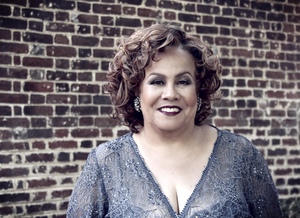Edenton Street United Methodist Church continues its mission to make the ministry of music conveniently available in downtown Raleigh. If indeed music is the gift of God, Maurice Duruflé’s exquisitely beautiful Requiem, Op. 9 is one of the most treasured. It presents us with thoughts and feelings about life’s finale experience that comfort and uplift our spirits to realms beyond the routine of daily existence. It illuminates our daily living as it expands our understanding and acceptance of loss. As part of the somber Good Friday service of worship on this occasion it had special meaning and impact.
The Requiem or Mass for the dead has a long and celebrated existence in the history of church liturgy. From plainsong to Renaissance polyphony to settings in the baroque and classical eras the form of the mass changed little, and moved in some instances from the church sanctuary to the secular concert hall. Especially during the flowering of the romantic age and the modern age the Requiem became a major expression of the spiritual convictions of the great composers from Beethoven’s Missa Solemnis, Verdi’s Manzoni Requiem, Berlioz’s Grande Messe des morts to Britten’s monumental War Requiem. With Brahms’ German Requiem we find the protestant influence and adaptations of the rite for the dead.
Duruflé’s Requiem was composed in 1947; commissioned by the French music publisher Durand. The composer dedicated it in memory of his father. The major influences in its creation were Fauré’s gentle Requiem composed about fifty years earlier and Gregorian chant, a life-long fascination of the composer. At the time the commission came to write the Requiem, Duruflé was working on an organ suite employing themes from Gregorian chants and he used sketches from that work in the Requiem. Church organist Josh Dumbleton played the Prelude from the Suite for Organ, Op. 5, as the prelude for this service of worship. It was a very nice example of Duruflé’s widely recognized organ masterpieces as well as an insight into the composition of the Requiem. Nearly all the thematic material comes from chant and this is largely responsible for the mellow and other worldly nature of the work. It was a very nice touch that each of the Gregorian themes for the nine sections of the Requiem was printed in the program.
The Edenton Street United Methodist Chancel Choir and Orchestra along with Josh Dumbleton at the magnificent Letourneau organ were all under the direction of the venerable William J. Weisser. The singing and instrumental music were well balanced and excellently presented. There were passages that seemed to float through the sanctuary, making use of every inch of the soft reverberation qualities of the space. Rapturous swells and calming diminuendos in the music were unified and attacks and cut offs were precise.
Soloists, Christine Conley, mezzo-soprano, and Thomas Jaynes, bass, were both outstanding and provided focused contrasts to the singing of the full choir.
The Requiem was presented as part of the Good Friday Lenten Service. The symbols of Christian joy were draped in black as tradition requires, and the lighting was subdued. The program notes suggested that the audience refrain from applause and leave the sanctuary in a spirit of reverence and complete silence. Thus the unspoken benediction was the echo of the glorious music in the minds of those leaving the church.












